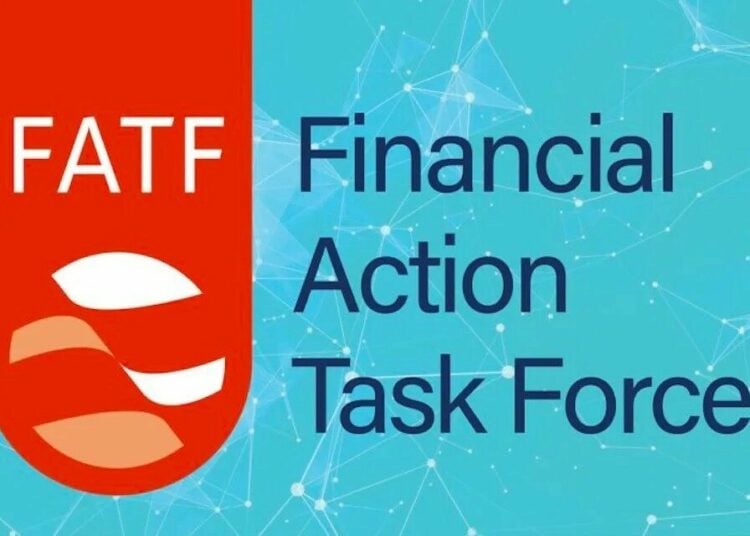Nigeria’s removal from the Financial Action Task Force (FATF) grey list, announced recently in Paris, marks a significant turnaround in the country’s financial credibility.
After spending nearly two years under increased global monitoring for deficiencies in combating money laundering and terrorist financing, Nigeria has demonstrated that it can meet international standards when there is political will and coordinated institutional action.
President Bola Tinubu’s administration deserves credit for treating this as a national priority rather than merely a technical inconvenience. But as we welcome this achievement, the harder question emerges: can Nigeria sustain these reforms beyond the immediate pressure of international scrutiny?
No doubt, the FATF grey listing in February 2023 was a measured response to glaring weaknesses in Nigeria’s financial governance framework. The country’s anti-money laundering and counter-terrorist financing mechanisms were inadequate. Corporate transparency was poor. Beneficial ownership records were either non-existent or unreliable. Law enforcement agencies lacked the capacity to investigate and prosecute complex financial crimes effectively.
In short, Nigeria had become a jurisdiction where illicit financial flows could operate with relative ease, and the global financial community took notice. Being grey-listed carries real economic consequences: it increases transaction costs, deters foreign investment, complicates international banking relationships, and damages national reputation.
What Nigeria has accomplished in just over two years is impressive by any standard. The reforms cut across multiple sectors and required unprecedented coordination among agencies that have historically operated in silos.
The operationalisation of the beneficial ownership register now makes it harder for criminals to hide behind shell companies. Enhanced corporate transparency measures have strengthened accountability in the business environment.
These are not cosmetic changes, they represent fundamental shifts in how Nigeria’s financial system operates and is perceived internationally.
Credit must go to the Nigerian Financial Intelligence Unit (NFIU) which coordinated this complex reform effort. The NFIU worked closely with the Attorney-General’s office, the Ministry of Finance, the Central Bank, the EFCC, and numerous other agencies to implement the FATF Action Plan within the required timeframe. This kind of inter-agency collaboration is rare in Nigerian governance, where turf wars and institutional jealousies often undermine collective action.
The Nigeria Governors’ Forum’s celebration of this achievement is appropriate, given that sub-national governments play crucial roles in financial governance and revenue generation. Governors have often been accused of running opaque financial systems in their states, with weak procurement processes and poor accountability mechanisms.
If the FATF delisting is to have lasting impact, state governments must embrace the same transparency standards that helped Nigeria exit the grey list. This means strengthening internal controls, improving audit processes, and ensuring that state-level anti-corruption agencies are not mere political tools but functional institutions.
However, we must not allow celebration to obscure the challenges that remain. Nigeria’s exit from the grey list does not mean the country has solved its corruption problem or eliminated financial crime. It means that the legal and institutional framework for combating these issues now meets international standards.
In our view, the test will be in consistent implementation and enforcement. Laws and regulations are only as good as the will to enforce them. Nigeria has a long history of excellent policies that exist only on paper while business continues as usual on the ground. The anti-money laundering framework cannot be allowed to suffer the same fate.
There are already reasons for caution. The Economic and Financial Crimes Commission (EFCC), which is supposed to be at the forefront of fighting financial crimes, has in recent years been plagued by allegations of selective prosecution.
Similarly, the judiciary must demonstrate capacity and willingness to handle complex financial crime cases efficiently.
Court delays and questionable judgments have historically frustrated anti-corruption efforts. A reformed legal framework means little if cases drag on for years without resolution or if politically connected defendants can manipulate the system.
Another concern is the sustainability of institutional reforms across political cycles. The FATF Action Plan was completed under significant international pressure and with focused presidential attention. But what happens when that pressure dissipates? What happens under a future administration that may not prioritise financial governance?
Nigeria’s history suggests that institutional gains are often reversed when political leadership changes. The anti-graft agencies have experienced this cycle repeatedly – strengthened under one government, weakened under the next. To prevent this pattern, the reforms must be deeply embedded in law and practice, not dependent on the enthusiasm of individual leaders.
The private sector also has responsibilities in this new phase. Nigerian businesses, particularly in the financial services sector, banking, oil and gas, and telecommunications must maintain high compliance standards.
We note the significant role international partners played in supporting Nigeria’s reform process. The governments of France, Germany, the United Kingdom, and the United States provided technical assistance. These partnerships should continue and deepen. But ultimately, Nigerian institutions must take full ownership of these systems. External support is helpful, but it cannot substitute for domestic commitment and capacity.
As Nigeria moves forward, the focus must shift from celebrating exit to ensuring that the country never finds itself back on the grey list. This requires sustained investment in institutional capacity, political courage to allow anti-corruption agencies to operate without interference, and a cultural shift toward greater transparency in both public and private sectors.
The Tinubu administration has promised that the reforms are institutionalised and will be sustained. Nigerians will be watching to see if that promise holds when the international spotlight moves elsewhere.





